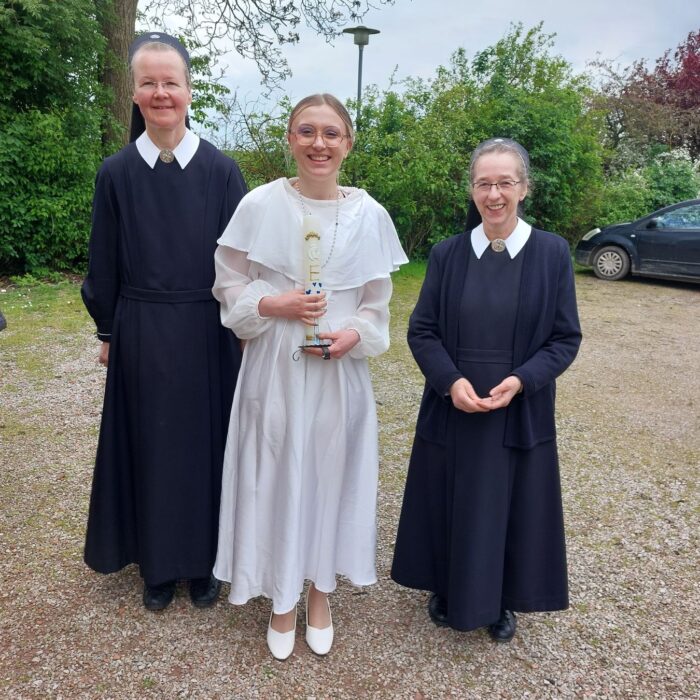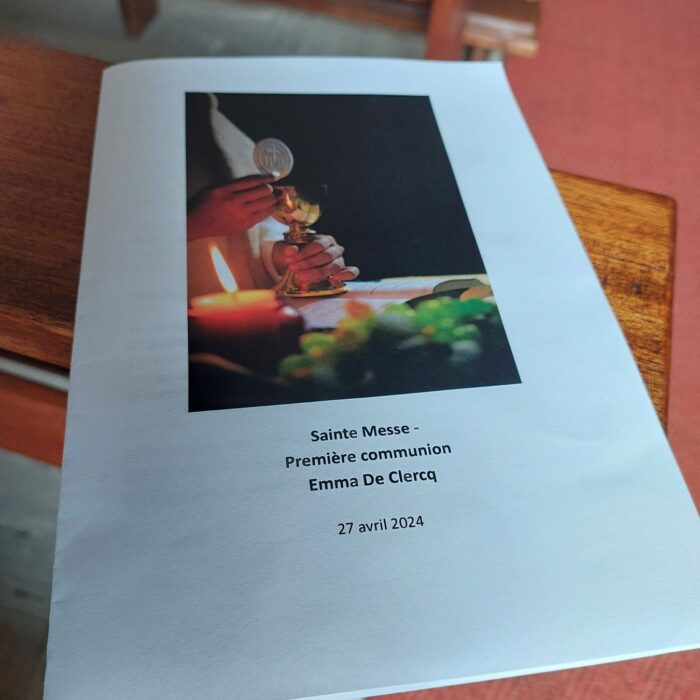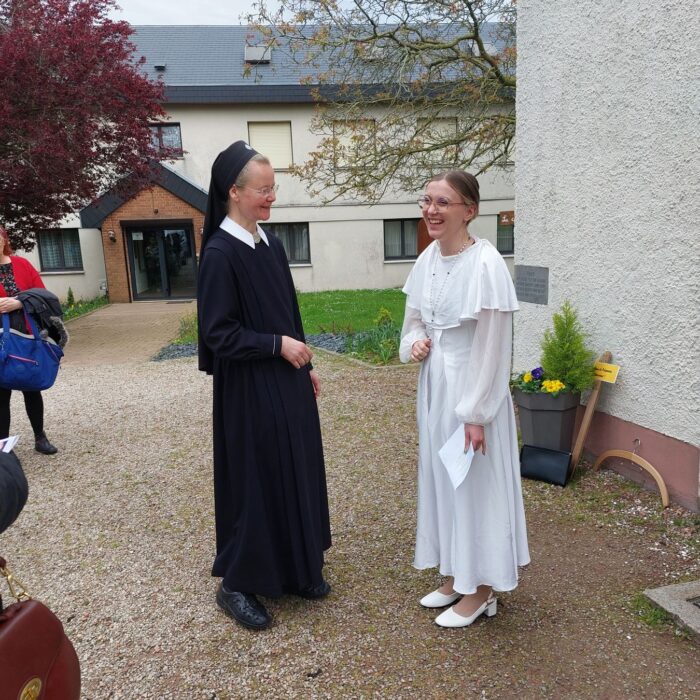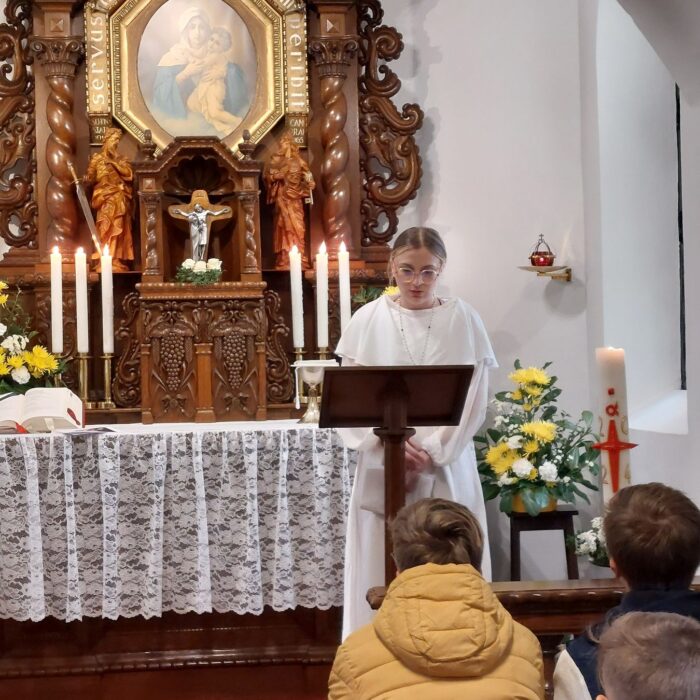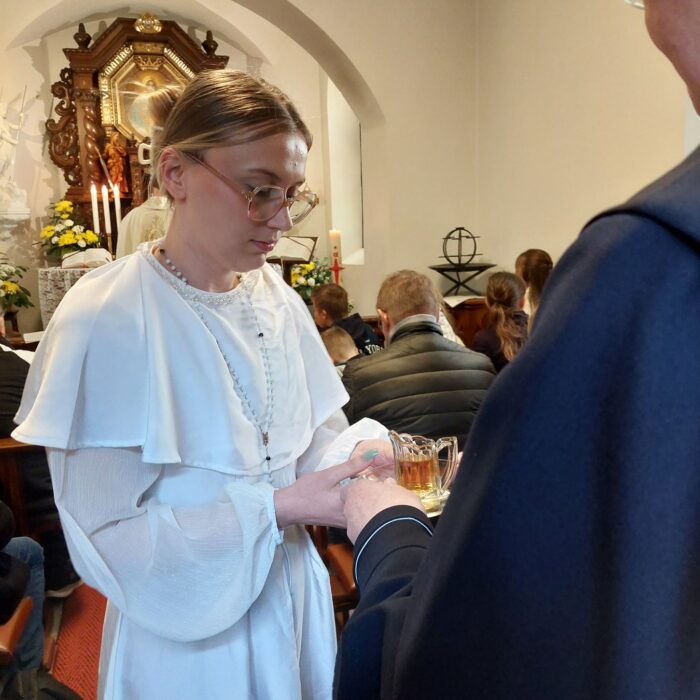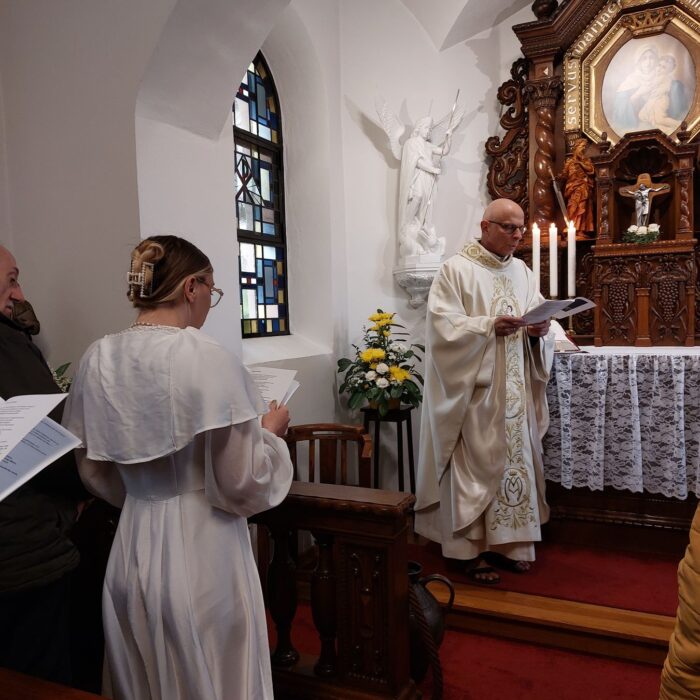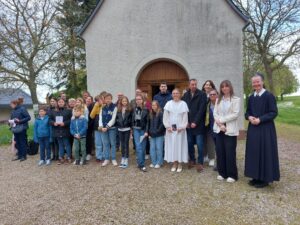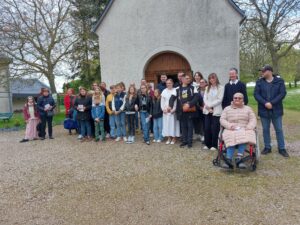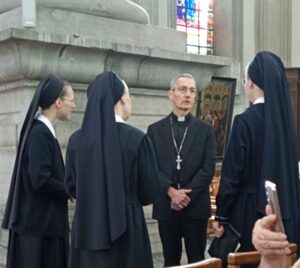Professing the Christian Faith
Emma is a young adult who has embarked on a new search for God. At the end of April 2024, she celebrated her
First Communion in the Schoenstatt Shrine of Unity in Cambrai.
She reports about her journey:
“My name is Emma, I am 20 years old and I just received my first Holy Communion!
I grew up in a traditional Catholic family, but not practicing. I was baptized, but I never participated in a Holy Mass. I always had faith. Thatis, I always believed in God. However, during the divorce of my parents I had a very complicated relation to religion. My mother, who was a very faith-filled person, has done nothing but bad things around him. I didn’t understand how someone who was so faith-filled could be so bad, and above all, that there was no divine punishment.
I avoided Church for a lon g time, but I never stopped searching for God and to pray. Little by little I visited churches again, but I didn’t go to Mass. The more time passed, the more I thought about it.
I passed the Schoenstatt Shrine of Unity on my way to the university. I saw it every day. One day I said to myself: Stop and talk to a sister. She will show you the way. And thanks to divine providence, I met Sister M. Resia. We talked for a long time behind the shrine, in the garden where there was this beautiful picture of Mary carrying Jesus in her arms. I was deeply moved. I thought that Mary could give me the motherly love that I didn’t receive from my mother and that Mary could lead me to God the Father. Thus began my journey to God and to community.
I cannot describe the joy over my first Holy Mass and the joy of receiving the Body of Christ for the first time.
I pray for all those who are still searching for God.
I will end this testimony with my favorite passage from Holy Scripture. I hope that it touches you just as it has touched me.
Matthew 6,19-21:
19 Do not store up for yourselves treasures on earth, where moth and decay destroys, and thieves break in and steal.
20 But store up treasures in heaven, where neither moth nor decay destoy, nor thieves break in and steal.
21 For where your treasure is, there also will your heart be.
What does the Diocese of Cambrai
look like?
Our Archbishop Vincent Dollman wrote in his letter for Lent 2024:
During Lent we strengthen our faith in God and our faithfulness to his commandments. In this way we will encourage the 220 catechumens in the diocese who will receive the sacraments of Baptism, Confirmation, and Eucharist. As with many dioceses in France, the number can be impressive.
According to the diocesan team from Cambrai, the youthful age of the group is another factor: About 60 are between the ages of 12 and 18, and the majority are between the ages of 18 and 35.
In their letter to the bishop, most of them speak of an experience of God; this was either through the witness of believers—especially grandmothers—or through an event of life such as the birth of a child or the death of a relative through which they were confronted with existential questions.”
The website, „ Église eglise.catholique.fr en France “ the Catholic Church in France, especially the Conference of Bishops of France states:
“The number of catechumens is increasing.
As in last year, the dioceses of France (104 in total) showed a strong increase of catechumens. From +28% in 2023, this growth will exceed the 30% mark in 2024. A total of 7,135 adults will be baptized at Easter this year and more than 5,000 young people (i.e. only middle and high school students, primary school students are not included in the survey).
That is more than 12,000 new young people and adults in the year 2024 alone.
Increasingly younger catechumens
The proportion of 18 to 25-year-olds, especially students, among adult catechumens will continue to rise in 2024, following a very significant increase last year. They now comprise more than a third of the newly baptized adults. (36% in the year 2024, vs. 34% in the year 2023).
Catechumens who are increasingly free from any Christian tradition
While a great majority of the adult catechumens come from families with a Christian tradition, this number decreases each year (61% in the year 2024, vs. almost 69% in the year 2023). In contrast, the number of people who state that they come from “families with no religion” is increasing significantly. They comprise a fourth of the adult catechumens.”
